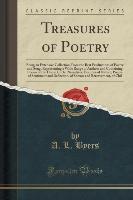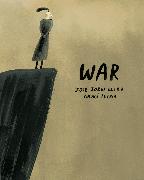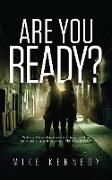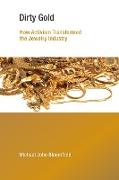Treasures of Poetry
BücherAngebote / Angebote:
Excerpt from Treasures of Poetry: Being an Extensive Collection From the Best Productions of Poetry and Song, Representing a Wide Range of Authors and Containing Poems of the Home Circle, Narratives, Beauties of Nature, Poems of Sentiment and Reflection, of Sorrow and Bereavement, of Chil
The Encyclopedia Britannica defines absolute Poetry as the concrete and artistic expression of the human mind in emotional and rhythmical language. No literary expression can, properly speaking, be called Poetry that is not in a certain deep sense emotional (whatever may be its subject-matter), concrete in its method and its diction, rhythmical in movement, and artistic in form.
It is said that Poetry comes from the heart, while Prose is merely the product of the mind, that the poet sings to us, whereas other men only talk, and that while he does not argue more logically than they, he feels more deeply and perhaps more truly.
Poetry has been called the twin-sister of Music. The alliance between the two is said to be of very ancient date and originally to have been constant. Whether the emotions of the heart broke forth in praises to the gods and heroes, or in the triumphal strains of happiness and victory, or yet in the lamentations of affliction and defeat, they were sung in measure to the sound of rude instruments. But when Poetry began to express a wider range of sentiment, it was found that the accompaniment of music was often inconvenient, and thus there was substituted the form of recitation more approaching to common speech.
As an explanation of how Poetry differs from Prose and also of its relation to Music, the following is quoted from a writer on the subject:
"A little consideration will lead to the conclusion that verse, in most languages, differs from prose in the return of a certain number of syllables that have a peculiar relation to one another as accented and unaccented, or as long and short. It is universally felt that a degree of pleasure arises from this definite arrangement, and the origin of that pleasure is to be traced back to the sense of time with which men are generally endowed. It is this principle that regulates the step of a man, or the stroke of an oar, and hence the pleasure we experience in beholding the regular step of a company of soldiers in their march, and the simultaneous sweep of the oars of a well-manned boat. The time of music, apart from tune, is evidently related to the movement to which we have now referred, and can accordingly be regulated by the properly measured, though monotonous, sound of the drum. The next process was to bring language into conformity with the music thus produced, and the result was verse - a measured or metrical line. As these results, therefore, flow from innate principles of our constitution, so, in looking as far back along the history of man as our materials enable us, we find him accompanied with music and verse, for the rude cadence of his song or the movement of his dance is ever accompanied by the tap of the drum.
"In the Bible, the most ancient of records, we find man, at a very early period, forming both wind and stringed instruments, modulating his speech into verse, and exhibiting in the very earliest instance on record that peculiar parallelism that characterized the Hebrew poetry of all subsequent ages."
As an expression of imaginative feeling, as the movement of an energy, as one of those great primal human forces which go to the development of the race, Poetry in the wide sense has played an important part.
Bryant says, in his remarks about English Poetry: "I have known persons who frankly said that they took no pleasure in reading poetry, and perhaps the number of those who make this admission would be greater were it not for the fear of appearing singular. But to the great mass of mankind,
Folgt in ca. 5 Arbeitstagen




